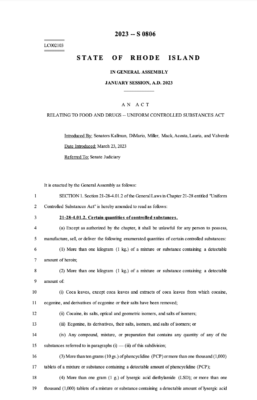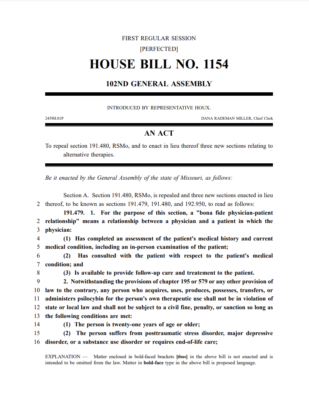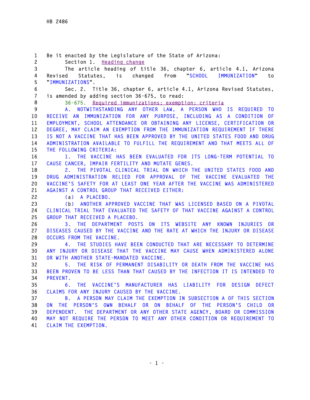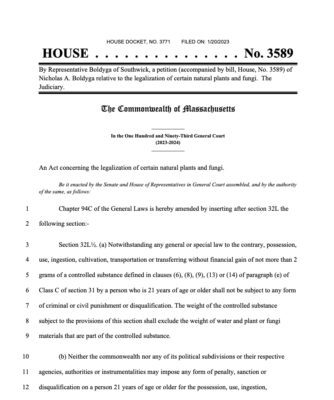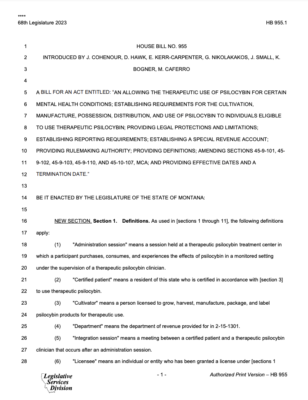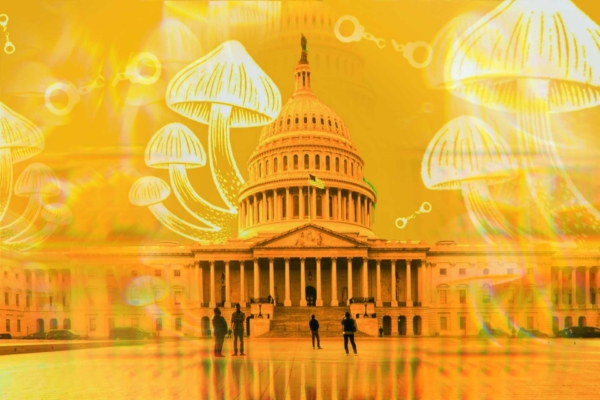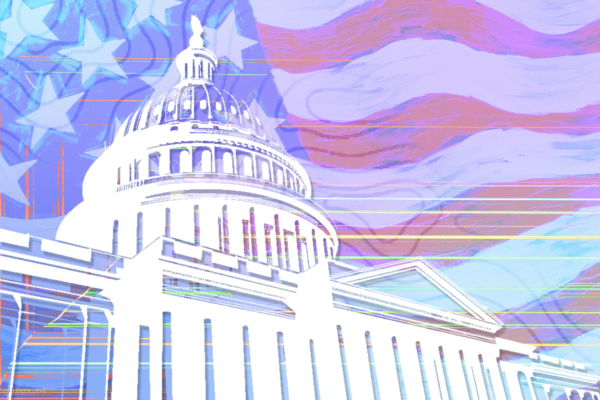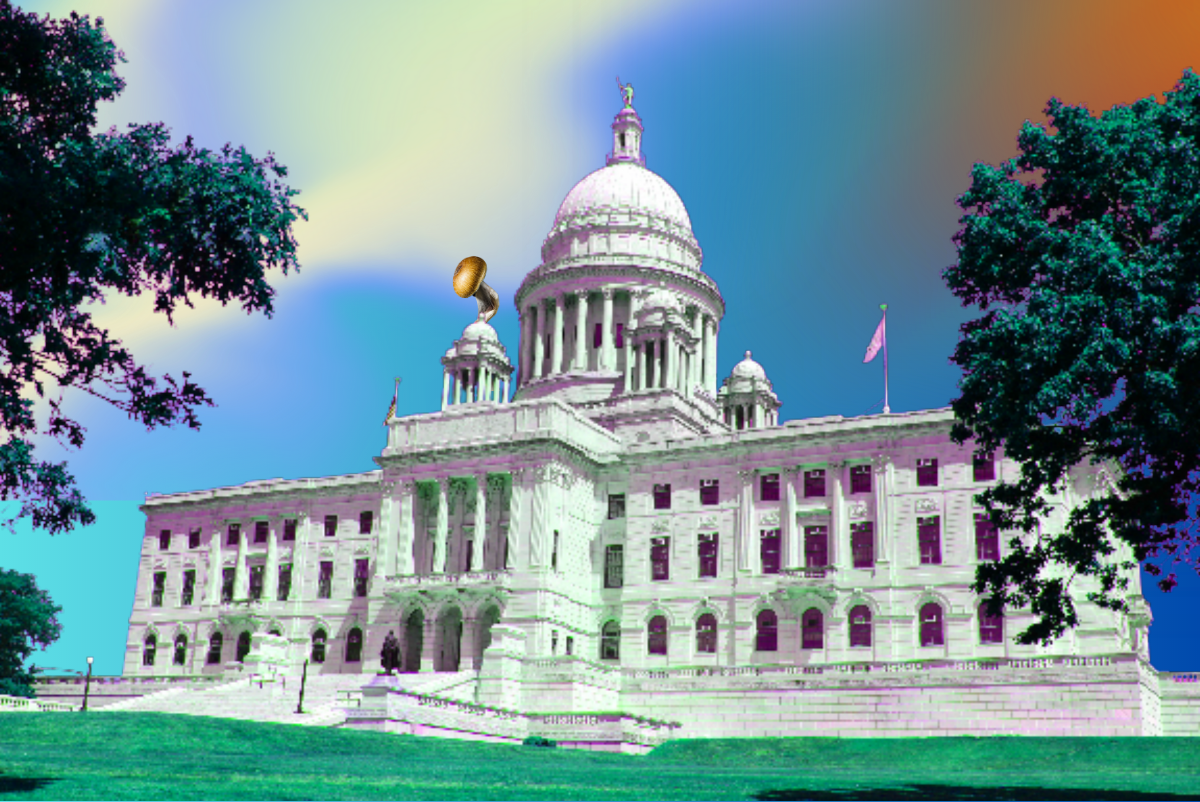
This week, there were mixed results in the push to legalize psychedelic substances.
- Rhode Island legislators have joined forces to pass a bipartisan bill, allowing possession of up to 1 ounce of psilocybin.
- Missouri has taken matters into their own hands and approved a bill for state research on psychedelics as treatment for depression and PTSD.
- Arizona is continuing the push for legalizing psilocybin by filing three psychedelic reform bills in the legislature
- Massachusetts GOP member brings forward additional similar legislation.
- Montana lawmakers stopped short from approving a new law that would legalize Psilocybin therapy.
Rhode Island legislators join forces to pass a bipartisan bill to legalize possession of up to 1 ounce of psilocybin
S0806 would amend state laws to legalize possession of up to 1 ounce of psilocybin, home cultivation for personal use, and establish regulations for distribution and medical prescription.
It was initially introduced on March 23 and referred to the Senate Judiciary, where it currently sits.
The bill is sponsored by seven democratic senators, and would also, contingent on the US FDA’s rescheduling and expanding its access program, mandate that the RI department of health establish rules and regulations on the cultivation, distribution, and medical prescription of psilocybin. This act would take effect upon passage, but there is no current timetable for its journey through Rhode Island’s state Senate.
Labeled as the “Uniform Controlled Substances Act”, the bill outlines specific allowable quantities for substances such as heroin, DMT, cocaine, LSD, PCP, marijuana, MDMA, and amphetamine among others.
Missouri House backs bill requiring state research on psychedelics to treat depression, PTSD
In hopes of helping veterans and other Missourians facing mental health issues, the Missouri House advanced a bill on 3/29/2023 that would require the state to conduct a study on using psilocybin, also known as “magic mushrooms,” to treat depression, substance use or as part end-of-life care.
Several lawmakers said they were “passionate” about seeing the study go forward during Wednesday’s debate. Among them was Rep. Aaron McMullen, R-Independence, a veteran who served in a combat unit in Afghanistan.
“Substance abuse and suicide are escalating in the veteran’s community,” McCullen said, quoting a letter from the Grunt Style Foundation that serves veterans. “While psilocybin is not a panacea for every issue, it represents a first true scientifically validated hope that we have to address this crisis.”
The House overwhelmingly approved the measure, sponsored by Rep. Dan Houx, R-Warrensburg.. The bill still needs a final vote in the House before it heads to the Senate.
In early March, the bill passed out of the House Veterans Committee unanimously.
This new legislation requires the Department of Health and Senior Services (DHSS) to provide grants totaling $2 million for the research, subject to lawmakers approving the appropriation. The state would collaborate on the study with a Missouri university hospital or medical center operated by the U.S. Department of Veterans Affairs in Missouri. The focus of the treatment is on patients suffering from post-traumatic stress disorder, depression, substance use disorders, or for those who require end-of-life care.
Continued push to legalize psilocybin for medical research from Arizona legislature
If fully approved, bipartisan HB 2486 would open doors to funding and research for the use of a psylocibin, in certain medical settings.
It aims to give $30 million in grants to study psilocybin’s effects on medical conditions like depression, addiction, anxiety, PTSD and more.
Jeff Toppel, a local attorney, said the research would be regulated through the federal government, and the bill would just provide the funding.
“In this early stage, and again at this point it’s just research, but the thought is it’s really going to be limited to these groups that need it and there won’t be a concern for more widespread use,” Toppel said.
The House Military Affairs and Public Safety Committee approved the bill unanimously 15 to zero, as it makes its way through the legislature.
“Not only was that extraordinary, that result, but in voting on the bill several of the representatives were emphatic about their support for this bill,” Toppel said.
If passed, the bill aims to focus psilocybin research on veterans, first responders, frontline health care workers and people from underserved communities.
Three psychedelic reform bills filed by Massachusetts GOP lawmaker
A Massachusetts lawmaker has filed three new psychedelics reform bills, including proposals to legalize substances like psilocybin and reschedule MDMA pending federal approval while setting a price cap on therapeutic access.
The measures from Rep. Nicholas Boldyga (R), who describes himself as the “most conservative” member of the legislature, are the latest examples of psychedelics reforms that lawmakers in the state are pursuing this session.
“People are suffering from debilitating mental health issues such as PTSD, traumatic brain injury, anxiety, and depression,” Boldyga said in a press release on Tuesday. “These psychedelic compounds and plant medicines are offering hope and healing to those that were once hopeless.”
“Plant medicines have been used for thousands of years by various cultures around the world, they truly are revolutionizing how we approach mental health and wellbeing,” he said.
The three bills are as follows:
This would legalize the possession, cultivation, and gifting of up to two grams of psilocybin, ibogaine, DMT and mescaline for adults 21 and older.
Boldyga said that the reform is “about ending unjust laws and expanding legal access to lifesaving plant medicines,” adding that it’s important to take a non-commercial approach and not view legalization as a revenue generator.
It would legalize psilocybin for adults 18 and older through a regulated model, similar to the system that Oregon is implementing. People could access the psychedelic at licensed facilities for “therapeutic, spiritual, and medicinal purposes.”
Regulators would also be authorized to license independent schools to train facilitators on how to effectively administer psilocybin.
MDMA would be automatically rescheduled and made available for treatment of post-traumatic stress disorder (PTSD) if the federal Food and Drug Administration (FDA) approves it.
Further, it would set a cap of $5,000 per session using MDMA to prevent price gouging.
“I share similar concerns among grassroots advocates about access, affordability, and the over-corporatization of psychedelic compounds and plant medicines,” the sponsor said.
“I look forward to working with advocates and others to do everything we can to deliver this lifesaving therapy to as many people as possible suffering from PTSD,” he said.
You may also like: Republican Lawmaker introduces Bill Related to the Legalization of Psychedelics and Natural Plant Medicines
Montana Lawmakers Defeat Psilocybin Therapy Legalization Bill
Montana lawmakers have defeated a bill that would have legalized psilocybin therapy for adults with certain medical conditions. However, there’s talk about moving a more limited measure to study possible psychedelics reforms.
The House Human Services Committee took up the legislation from Rep. Jill Cohenour (D) in a hearing on Wednesday. Members then rejected the measure in an executive session in a 9-12 vote on Thursday.
The bill would have allowed adults 18 and older with one of four qualifying conditions to access the psychedelic in a regulated, therapeutic setting with professionals. The qualifying conditions were post-traumatic stress disorder (PTSD), anxiety, depression and substance use disorders.
Cohenour said during Wednesday’s committee hearing that psychedelics reform is “becoming such an up-and-coming thing that we really wanted to get this conversation in front of the legislature.” She pointed to psychedelic legalization developments in California, Colorado and Oregon.
The Department of Revenue would have been responsible for issuing medical psilocybin cards to patients who provide the necessary documentation, as well as business licenses for therapeutic psilocybin treatment centers.
Those centers would have been permitted to cultivate and administer the psychedelic as prescribed by the law and overseen by the department.
Further, the legislation laid out requirements for psilocybin clinicians, facilitators, and technicians.
The proposal sought to provide legal protections for employees, licensees and patients who participate in the program. It also laid out penalties for unsanctioned activity such as prohibited distribution of the fungi.
“The use of therapeutic psilocybin must occur under the supervision of a therapeutic psilocybin clinician and only as part of a treatment regimen consisting of a preparation session, an administration session, and an integration session,” the bill text says.
